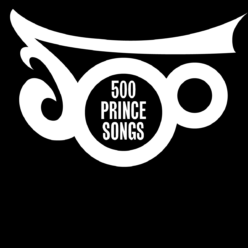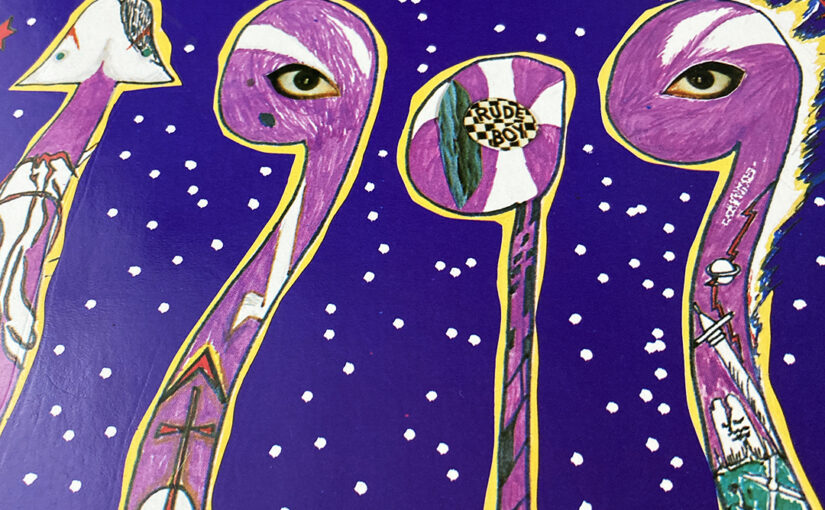1999 (1982)
In the summer of 1979, disco was at its peak and The Bee Gees were celebrating their sixth consecutive number 1. The US charts looked ripe for the brand of falsetto-sung R&B that Prince had just finished recording for his sophomore album. Then a rock DJ made headlines when he detonated a crate of disco records at a baseball game and rioters stormed the field chanting “disco sucks” and “death to disco”. Fueled by homophobia, racism and the surge of conservatism that would usher in the Reagan era, this violent backlash soon ballooned nationwide, not only venting its ire at disco, but at any music not deemed white and heterosexual enough. The disco bubble burst. My Sharona replaced Chic’s Good Times at the top of the charts and it was another decade until the tainted Bee Gees got near the top 10 again. Classic rock and country began their long chokehold of the airwaves.
Prince must have sensed these winds of change. On that night of the Disco Demolition in Chicago, he and his band were in Colorado, recording throwback rock songs under the name The Rebels, including a diss on disco written by Dez Dickerson called Disco Away. The songs were deemed too generic though. A creative dead end. If he was to cross over it wouldn’t be by pandering to demand and watering down his sound. It would be on his terms.
A year and two tours later Prince unveiled his new approach for the new decade. Inspired by new wave, he incorporated rock elements into the funk of his childhood and gave birth to the Minneapolis Sound – a genre that would transform the charts by the mid-80s. Introduced on Dirty Mind, and developed further on Controversy, The Time and Vanity 6, it was on the 1999 album where this genre found its perfect form. Despite being omitted on early CD versions of the album, DMSR is the Minneapolis Sound par excellence. A synth and drum machine manifesto to all those about to follow in his funksteps. It resurrected disco’s call to lose yourself on the dance floor, and even featured a tom tom breakdown, but was cloaked in the grit and grime of funk that never would have passed Studio 54’s door policy. Instead of revelling in extravagance, Prince the dance instructor tells us to “work your body like a whore” and how it doesn’t matter what we’re wearing – in fact the less clothes the better.
This wasn’t the disco-world of celebrity excess, this was an invite for everybody to let their hair down and get a-freakin. The White, Black and Puerto Rican Uptowners were encouraged to sing, as were the Japanese albeit over a slightly racist synth hook. New fans attracted by Little Red Corvette’s rock choruses received helpful instructions on when to clap, whereas old fans got Jamie Starr references to dissect. All were catered for. There’s a reason why the word “everybody” is mentioned 21 times. As long as you enjoyed dancing, playing music, sex or romance, there was a space for you in this discotheque of the disaffected.
But as he tells us on the album’s title track, parties weren’t meant to last. Like every memorable all-nighter, DMSR doesn’t peter out but ends in mayhem and someone calling the police. An actual emergency or shut down by a Disco Sucks killjoy?
Disco didn’t die. It retreated underground to be nurtured by clubs like the Paradise Garage. But during its hibernation, Prince knew something that record-makers have known since the days of Chubby Checker. People will always like dancing to dance records about dancing.


Most skippable song on 1999 for me.
Outrageous! I’m outraged! 🙂
Wow, have you heard Free?
We miss you.